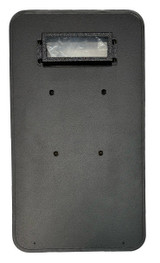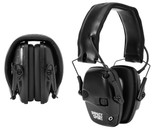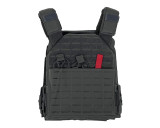Evaluating the Effectiveness of Bulletproof Blankets in School Shootings
Introduction
In recent years, the tragic frequency of school shootings has led to a heightened focus on safety measures within educational institutions. One innovative solution that has garnered attention is the use of bulletproof blankets. This article aims to provide a detailed and unique examination of how effective bulletproof blankets could be as protection in school shootings. It will offer insights for parents and teachers, discussing the nuances of selecting these blankets and key considerations to ensure optimal safety.
Understanding Bulletproof Blankets
Bulletproof blankets are made from advanced ballistic materials, such as Kevlar, Dyneema, or other ultra-high-molecular-weight polyethylene (UHMWPE) composites. These materials are designed to stop or slow down bullets and shrapnel, providing portable and flexible protection.
Common Materials Used in Bulletproof Blankets
| Material | Description | Pros | Cons |
| Kevlar | High tensile strength synthetic fiber | Lightweight, flexible | May degrade over time |
| Dyneema (UHMWPE) | Ultra-high-molecular-weight polyethylene | Extremely lightweight, durable | Expensive, sensitive to heat |
| Composite Fabrics | Combination of multiple ballistic materials | Enhanced protection | Bulkier, higher cost |
Effectiveness in School Shootings
The effectiveness of bulletproof blankets in a school shooting scenario depends on several factors:
- Ballistic Protection Level: The level of protection provided by a bulletproof blanket is determined by its ability to stop specific types of ammunition. The National Institute of Justice (NIJ) rates body armor and similar protective gear into different levels.
NIJ Protection Levels for Bulletproof Blankets
| Protection Level | Description | Common Threats Blocked |
| Level IIA | Protects against 9mm and .40 S&W rounds | Lower velocity handgun rounds |
| Level II | Protects against 9mm, .357 Magnum | Standard handgun rounds |
| Level IIIA | Protects against .357 SIG, .44 Magnum | Higher velocity handgun rounds |
| Level III | Protects against 7.62mm FMJ (Rifle) | Rifle rounds |
| Level IV | Protects against .30-06 AP (Armor-Piercing Rifle) | Armor-piercing rifle rounds |
- Coverage Area: The size of the blanket determines the area of protection. Larger blankets can cover multiple individuals, while smaller ones may only protect one person.
- Ease of Use and Deployment: In an emergency, the blanket must be easy to deploy quickly. Factors such as weight, flexibility, and design impact how effectively it can be used in a crisis.
- Multi-Purpose Use: Bulletproof blankets can also serve other functions, such as shielding against shrapnel or being used as a barrier in barricading a room.
Factors Influencing Effectiveness
| Factor | Description | Importance for School Use |
| Ballistic Protection | Level of bullet resistance | High |
| Coverage Area | Size of the blanket | Medium to High |
| Ease of Use | Weight, flexibility, deployment speed | High |
| Multi-Purpose Use | Additional functionalities | Medium |
Selecting a Bulletproof Blanket
When selecting a bulletproof blanket for school use, parents and educators should consider the following aspects:
- Protection Level: Ensure the blanket meets at least Level IIIA standards to provide adequate protection against common handgun threats encountered in school shootings.
- Size and Weight: Choose a blanket that is large enough to cover an adult and one or two children, but light enough for easy handling.
- Durability: The material should be durable and resistant to environmental factors like heat and moisture, which can degrade its ballistic properties.
- Cost: While higher protection levels and larger sizes come at a greater cost, investing in the best possible protection is crucial for ensuring safety.
- Manufacturer Credentials: Purchase from reputable manufacturers who provide certified products that meet NIJ standards.
Key Considerations for Selecting a Bulletproof Blanket
| Consideration | Description | Recommended Specification |
| Protection Level | NIJ-rated level of ballistic protection | Level IIIA or higher |
| Size and Weight | Dimensions and ease of handling | Minimum 4x6 feet, under 10 lbs |
| Durability | Resistance to environmental degradation | High resistance to heat and moisture |
| Cost | Price range | $500 - $2000 depending on features |
| Manufacturer | Certification and reputation | NIJ-certified, well-reviewed |
Practical Use and Training
- Regular Drills: Incorporate the use of bulletproof blankets in school safety drills to ensure students and staff know how to deploy them quickly and effectively.
- Accessible Storage: Store blankets in easily accessible locations, such as classrooms and hallways, where they can be quickly retrieved in an emergency.
- Education: Educate teachers and students on the proper use of bulletproof blankets, including how to position themselves and cover vital areas for maximum protection.
Conclusion
Bulletproof blankets can be an effective layer of protection in school shootings, offering a flexible and portable solution to enhance safety. By understanding the materials, protection levels, and key considerations for selection, parents and educators can make informed decisions to safeguard their students and children. Proper training and deployment are essential to maximize the effectiveness of these blankets in a crisis. Investing in quality bulletproof blankets is a proactive step toward creating a safer school environment.
Recent Posts
-
Understanding Ballistic Shield Ratings and Their Applications
The Trusted Name in Tactical Defense - BattleSteel® When it comes to protecting those who protect us …2025-04-19 -
The Importance of Hearing Protection in Tactical Environments
The Legacy of BattleSteel® BattleSteel® is a trusted name in the world of tactical defense equipment …2025-04-14 -
How to Properly Fit and Wear a Plate Carrier
About BattleSteel and Their Mission BattleSteel is a trusted name in the tactical gear industry, ren …2025-04-11


